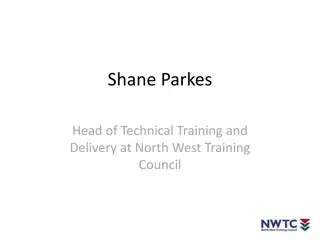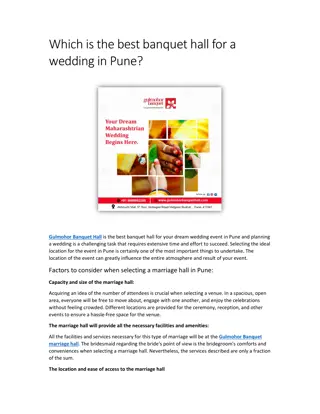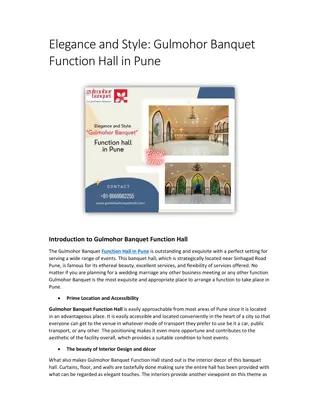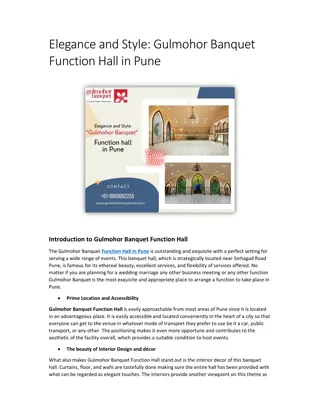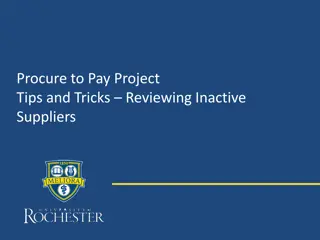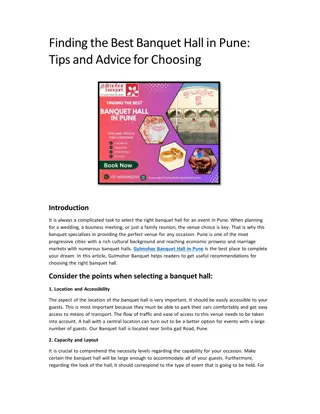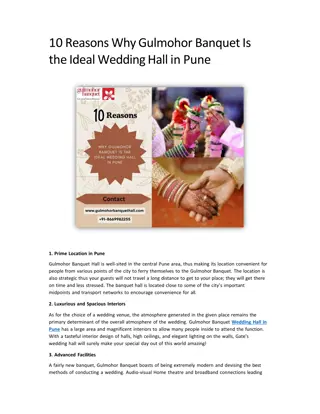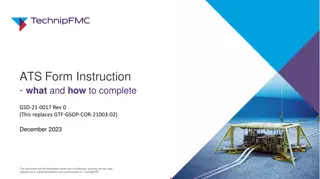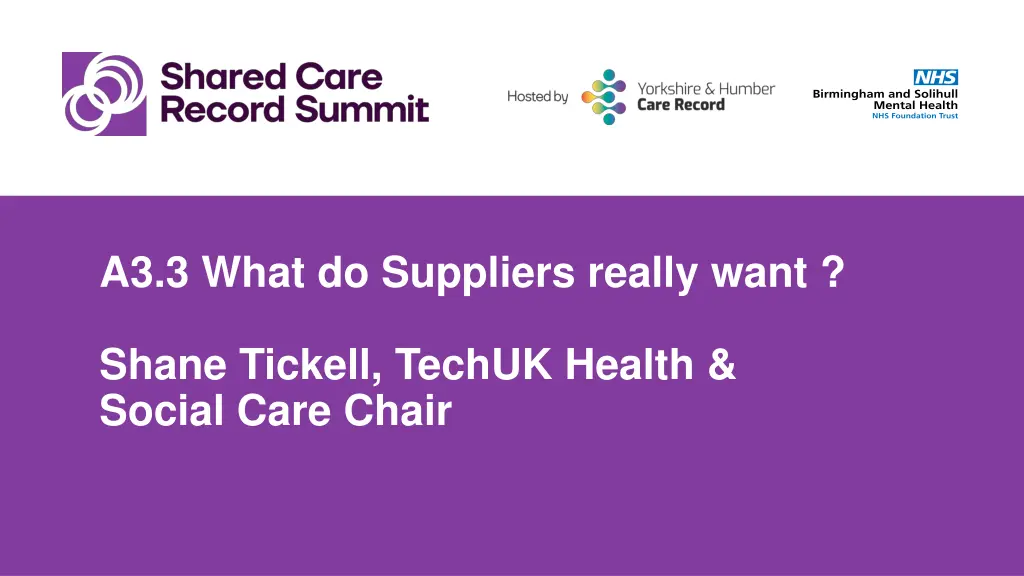
Key Insights on Suppliers' Needs in Health Tech Industry
Gain valuable insights on what suppliers truly desire in the health tech sector from Shane Tickell, TechUK Health & Social Care Chair. Discover the importance of open interoperability standards, areas for improvement, challenges hindering FHIR standards implementation, and the slow pace of development in UK Core standards.
Download Presentation

Please find below an Image/Link to download the presentation.
The content on the website is provided AS IS for your information and personal use only. It may not be sold, licensed, or shared on other websites without obtaining consent from the author. If you encounter any issues during the download, it is possible that the publisher has removed the file from their server.
You are allowed to download the files provided on this website for personal or commercial use, subject to the condition that they are used lawfully. All files are the property of their respective owners.
The content on the website is provided AS IS for your information and personal use only. It may not be sold, licensed, or shared on other websites without obtaining consent from the author.
E N D
Presentation Transcript
A3.3 What do Suppliers really want ? Shane Tickell, TechUK Health & Social Care Chair
Good Things 1.HL7 FHIR UK Core Board co-chaired by NHSE and HK7 UK. 2.NHSE, BCS, HL7, Vendors , PRSB, Social Care, NHS Wales, FCI/BCS. 3.Open and honest 4.Prioritise interoperability work 5.Social Care has an equal seat at the table on all areas 6.HL7 deeply involved in the development of HL7 FHIR UK Core
Improvement Areas 1.More use of international standards 2.The HL7 FHIR UK Core interoperability specifications must be implementable 3.Development is too slow 4.Feasibility of supporting information standards from PRSB. 5.With DPDI coming down the line and standards mandated in law, consideration being made for certification capacity a? 6.Inadequate visibility of standards and confidence for suppliers to invest in their support 7.More honesty from NHSE when timescales slip and what the replan is. It is not a sign of failure when things slip stuff happens!
Open Interoperability Standards HL7 FHIR UK Core. UK Core is the version of the HL7 FHIR standard developed for the UK NHS still does not use enough industry standard interoperability standards There are many proven standards that have been around for over 20 years but the NHS still doesn t use them.
HL7 FHIR UK Core UK Core not being implementable 1.Much to do to make FHIR standards implementable UK Core. 2. Two main reasons; what have been created in the FHIR specifications are inadequate for developers to use. Even if we improved the specifications so developers could use them, we still have no APIs defined. What we trying to do is a new endeavour. All previous interoperability standards were defined to access NHS national systems NHS Spine etc.. What are being defined now are standards to allow 3rd party ShCRs and EPRs to interoperate using the same standards and APIs so it doesn t matter whether you are integrating with Cerner, Epic, SystemC, Meditech, Orion Health, Graphnet
Development is way too slow. Currently UK Core is being created by the Interoperability Standards (IOPS) group. With the budget cuts from the merging of NHS Digital into NHS England the IOPS team has been reduced, challenging the of development of the UK Core on their own. We need a process that decentralised the development of UK which will include suppliers developing UK Core standards and then having them brought into UK Core true co-production We are a long way from achieving that.
PRSB The PRSB information standards are great The PRSB information standards are great But! Many are just too large to be practical to implement. Take the Core Information Standard. It has around 1500 data items. The PRSB is doing a great job defining a Minimum Viable Data Set. The PRSB is doing a great job defining a Minimum Viable Data Set. However today, the basic level of conformance Level 1 - is still having 40% of the Core Information Standard data items (600!).
Conformance Testing Conformance Testing Conformance Testing Conformance testing has been the bain of system supplier organisations. This is a huge bottleneck and there are examples when a software supplier is ready to go through certification, but they are in a queue and it will take 6 months to get to them. As people about GP Connect so slow and expensive even NHS organisations are saying use the MIG . The DPDI bill is going to massively increase the amount of conformance testing that needs to be done, so NHS England should appoint a number of partners who can do this so there is the required capacity.
Lack of visibility of standards being developed. Lack of visibility of standards being developed. System vendors need to have the confidence that when they develop their products to support standards they will be used and have longevity even though we know they can be tweaked over time. What is required is suppliers being able to see the backlog of standards to be developed and the priorities these prioritise will and should change over time, but there needs to be one place to find these (there isn t currently). So those responsible for prioritising have a single version of the truth to prioritise against and critically suppliers also know what standards they expect they have to develop. This gives the necessary confidence and preparation for suppliers and build up trust that those prioritised standards will have to be developed. This cannot be done in secret by NHSE.
Increased Transparency/honesty from NHS England on what is happening Increased Transparency/honesty from NHS England on what is happening with their initiatives with their initiatives. . Do you remember in 2016? when GP Connect was started suppliers were told we would start to use this by then 2018. Those dates came and went and there was no update at all until the middle of 2020 when the announcement was made that it was going to be ready, but by that time suppliers thought GP Connect had died and were using MIG. NHSE have been working on an Interoperability Strategy, but it appears that dates on it being issued have slipped, and there is no communication with suppliers on where it is and when it should be released. This is not progressive, dates slip, things go wrong. You don t look bad because of that, but they do look bad when there is radio-silence.
Non Non- -UKfirst UKfirst market suppliers market suppliers Priorities Priorities Priorities
Normalisation is now Normalisation is now Data Platforms. Structured and Un-Structured data Give us your data and we will , cleanse, organise, make available, send it back. NLP s Non Proprietary make it work for all
The Future The Future Let s not lose sight of what we are trying to achieve LLMs have massive potential How long until they are useable, safe, available at scale What do we do in the mean time ?
Thank you Shane Tickell 2024 Chair tech UK Health & Social Care Council Organisation shane.tickell@templeblack.co.uk Twitter @ShaneTickell Tel 07973297737








